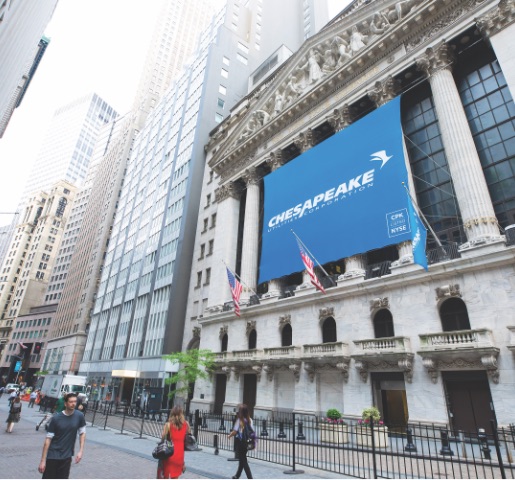- Full year 2022 earnings per share (“EPS”)* of $5.04, an increase of $0.31 or 6 percent, compared to $4.73 for the prior year
- EPS of $1.47 in the fourth quarter, an increase of $0.19 or 8 percent compared to $1.28 for the same period in the prior year
- Average Return on Equity (“ROE”) in 2022 of 11.1 percent – marks 18th consecutive year with ROE at or above 11 percent
- Year-over-year growth driven by pipeline expansions, regulatory initiatives, natural gas organic growth, acquisition contributions, and higher earnings in the Company’s unregulated businesses
- Received approval for the Florida natural gas rate case with the final order expected to be issued in March 2023
- Long-term earnings and capital expenditures guidance have been updated, with newly announced capital expenditure guidance of $200 million to $230 million for 2023
Dover, Delaware — Chesapeake Utilities Corporation (NYSE: CPK) (“Chesapeake Utilities” or the “Company”) today announced financial results for the year and the fourth quarter ended December 31, 2022.
For 2022, net income was $89.8 million compared to $83.5 million for 2021, representing growth of 7.6 percent. EPS for 2022 was $5.04 per share representing a 6.6 percent increase compared to $4.73 per share reported in 2021.
Full year earnings were driven by contributions from natural gas transmission pipeline expansions, incremental contributions from regulated infrastructure programs, organic growth in the Company’s natural gas distribution businesses, improved profitability in the Company’s propane distribution business, increased demand for services from our compressed natural gas (“CNG”), renewable natural gas (“RNG”), and liquefied natural gas (“LNG”) transmission and infrastructure operations, contribution from regulatory initiatives including implementation of interim rates associated with the Florida natural gas rate case filing and contributions from recent acquisitions. Additionally, the Company recognized a one-time gain related to the sale of a property. These increases were partially offset by higher interest expense resulting from increased interest rates associated with the Company’s short-term borrowings and the absence of the prior year one-time regulatory deferral of pandemic related costs and a non-recurring income tax benefit from the CARES Act.



